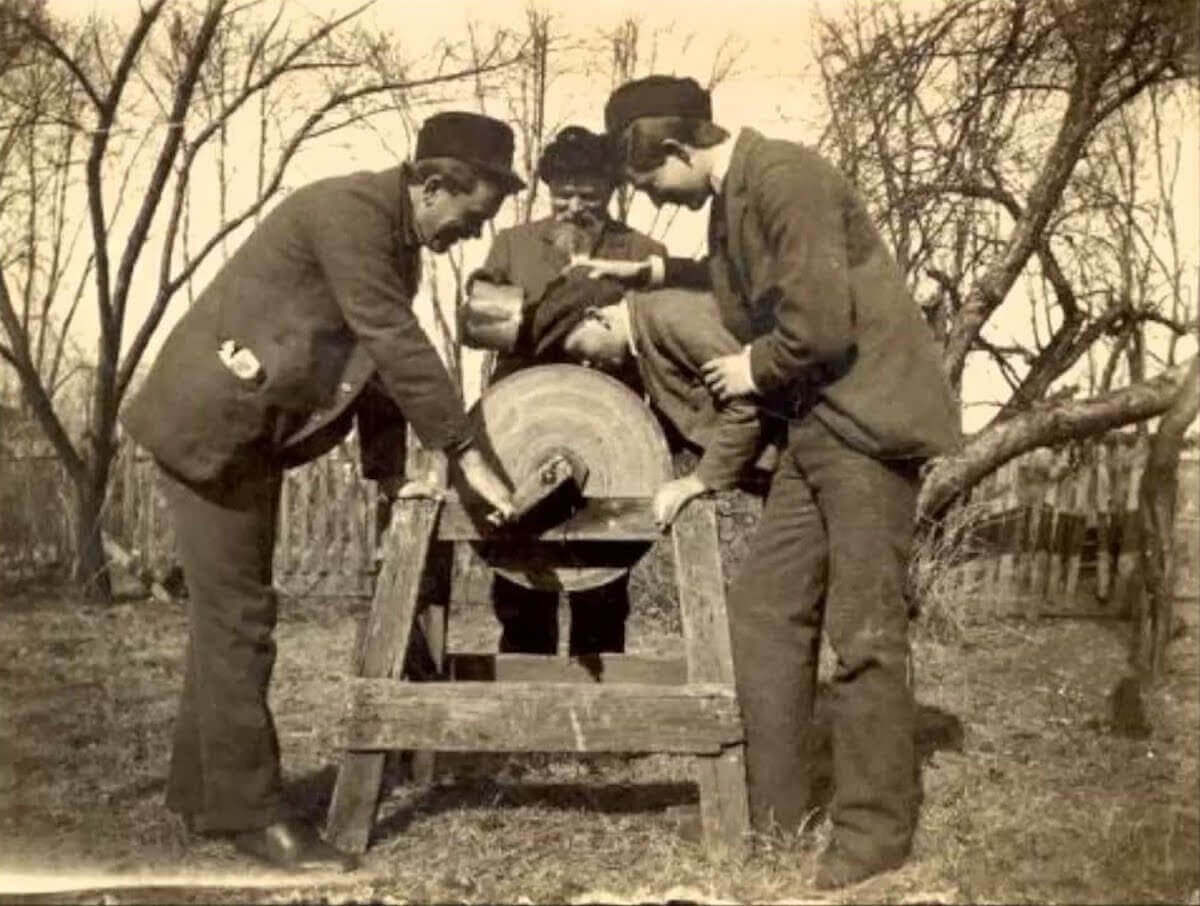By: Alan Graham
“Keep your nose to the grindstone”
Meaning: Apply yourself conscientiously to your work.
Origin
There are two rival explanations as to the origin of this phrase. One is that it comes from the supposed habit of millers who checked that the stones used for grinding cereal weren’t overheating by putting their nose to the stone in order to smell any burning. The other is that it comes from the practice of knife grinders when sharpening blades to bend over the stone, or even to lie flat on their fronts, with their faces near the grindstone in order to hold the blades against the stone.

The miller’s tale might have worked for Chaucer, but it doesn’t help here.
 All the evidence is against the miller’s tale. Firstly, the stones used by millers were commonly called millstones, not grindstones. The two terms were sometimes interchanged but the distinction between the two was made at least as early as 1400, when this line was printed in Turnament Totenham:
All the evidence is against the miller’s tale. Firstly, the stones used by millers were commonly called millstones, not grindstones. The two terms were sometimes interchanged but the distinction between the two was made at least as early as 1400, when this line was printed in Turnament Totenham:
“Ther was gryndulstones in gravy, And mylstones in mawmany.”
The Middle English language there is difficult to interpret but it certainly shows the grindstones and millstones as being distinct from each other. If the derivation was from milling we would expect the phrase to be ‘nose to the millstone’.
A second point in favour of the tool sharpening derivation is that all the early citations refer to holding someone’s nose to the grindstone as a form of punishment. This is more in keeping with the notion of the continuous hard labour implicit in being strapped to one’s bench than it is to the occasional sniffing of ground flour by a miller.

The first known citation is John Frith’s A mirrour or glasse to know thyselfe, 1532:
“This Text holdeth their noses so hard to the grindstone, that it clean disfigureth their faces.”
The phrase appears in print at various dates since the 16th century. It was well-enough known in rural USA in the early 20th century for this picture, which alludes to the ‘holding someone’s nose to the grindstone’ version of the phrase, to have been staged as a joke (circa 1910).
